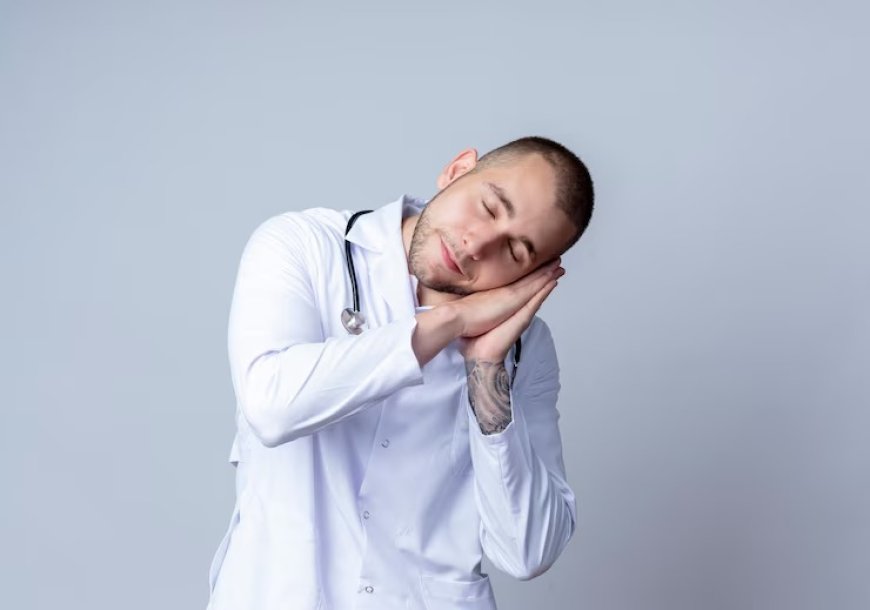Understanding Sleep Apnea and the Importance of Regular Doctor Visits
Learn about sleep apnea and how regular doctor visits, along with nasal masks, can improve your treatment and quality of sleep.

Sleep apnea is a common and serious disorder that affects millions of people worldwide. It occurs when a persons breathing repeatedly stops and starts during sleep, leading to fragmented and poor-quality rest. Although many individuals may not realize they have the condition, untreated sleep apnea can lead to numerous health complications, such as high blood pressure, heart disease, and stroke. Seeking the guidance of sleep apnea doctors and maintaining regular doctor visits is crucial for managing the condition effectively. Additionally, tools like nasal masks have proven to be an essential part of treatment, improving the lives of many patients.
What is Sleep Apnea?
Sleep apnea is categorized into three main types: obstructive sleep apnea (OSA), central sleep apnea (CSA), and complex sleep apnea syndrome. OSA, the most common form, occurs when the muscles at the back of your throat relax excessively, causing a temporary blockage in the airway. CSA, on the other hand, results from the brain failing to send the correct signals to the muscles that control breathing. Complex sleep apnea syndrome is a combination of the two.
The Role of Sleep Apnea Doctors in Diagnosis and Treatment
Sleep apnea can be a silent condition, with most patients unaware they suffer from it. Symptoms such as excessive snoring, daytime fatigue, and frequent awakenings during the night might go unnoticed unless a healthcare professional is consulted. This is where the expertise of sleep apnea doctors becomes invaluable.
Sleep apnea doctors are highly trained specialists who can diagnose the disorder through sleep studies or polysomnography, which measures various bodily functions during sleep, such as brain activity, eye movement, and heart rate. These tests allow the doctor to determine the severity of sleep apnea, helping to create a tailored treatment plan for the patient.
Nasal Masks: A Vital Treatment Option
One of the most common treatments for sleep apnea, particularly OSA, is continuous positive airway pressure (CPAP) therapy. CPAP therapy involves wearing a nasal masks connected to a machine that delivers a steady stream of air, keeping the airway open during sleep. Nasal masks are often preferred for patients who find full-face masks uncomfortable or restrictive.
These masks come in a variety of styles and sizes to ensure a proper fit. The key to effective CPAP therapy lies in ensuring that the mask fits snugly but comfortably. A mask that is too loose can lead to air leakage, while one that is too tight may cause discomfort or skin irritation. Sleep apnea doctors typically help patients choose the right nasal mask based on their comfort preferences and specific needs.
The Importance of Regular Doctor Visits
While CPAP therapy and nasal masks are effective treatments, they require ongoing maintenance and monitoring. Regular visits to a sleep apnea doctor are essential to track progress and address any issues that may arise with treatment.
Monitoring and Adjusting Therapy
Over time, a patient's condition may change, necessitating adjustments to the therapy. For instance, weight gain or loss, changes in sleep patterns, or the onset of other health conditions can impact the effectiveness of CPAP therapy. Regular check-ups ensure that sleep apnea doctorscan adjust the pressure settings of the CPAP machine or recommend a different mask style if necessary.
In some cases, patients may need supplementary treatments, such as oral appliances or surgery, if CPAP therapy is not sufficient. A sleep apnea doctor is the ideal professional to evaluate all available options and ensure that the treatment plan continues to meet the patients evolving needs.
Preventing Complications and Managing Side Effects
Untreated or poorly managed sleep apnea can lead to several serious health problems, including cardiovascular disease, diabetes, and even premature death. Regular visits to a sleep apnea doctor help catch these potential complications early on, reducing the risk of long-term health damage.
Moreover, some patients may experience side effects from CPAP therapy, such as skin irritation, nasal congestion, or discomfort from the mask. A sleep apnea doctor can help manage these side effects by recommending solutions such as moisturizing nasal sprays, adjusting the mask fit, or switching to a different type of mask. Addressing these concerns promptly can enhance the patient's adherence to the therapy, leading to better overall outcomes.
The Role of Follow-Up Care in Sleep Apnea Management
Effective management of sleep apnea doesn't end with a diagnosis or the initiation of treatment. Follow-up care is crucial to ensure that the patient is benefiting from the prescribed therapy. During follow-up visits, a sleep apnea doctor can assess whether the patient is using their nasal mask correctly and for the recommended amount of time. This ongoing support is vital to achieving long-term success in managing sleep apnea.
For patients who experience difficulties with their mask or machine, these visits also offer an opportunity to discuss alternative treatment options, such as positional therapy, weight loss strategies, or surgery, depending on the severity and cause of the sleep apnea.
Conclusion: A Collaborative Approach to Better Sleep
In conclusion, sleep apnea is a condition that requires comprehensive management and ongoing attention. Consulting with sleep apnea doctors ensures that patients receive accurate diagnoses, customized treatment plans, and consistent monitoring to improve their quality of life. nasal masks, as part of CPAP therapy, offer an effective solution to help patients breathe easily and sleep soundly. However, regular doctor visits remain essential for managing the condition, adjusting treatment plans, and preventing complications.
By maintaining a proactive approach to sleep apnea treatment, patients can improve their health, reduce risks, and enjoy better, more restful sleep. Regular visits to a sleep apnea doctor are a crucial element in achieving these goals and managing the disorder in the long term.







































